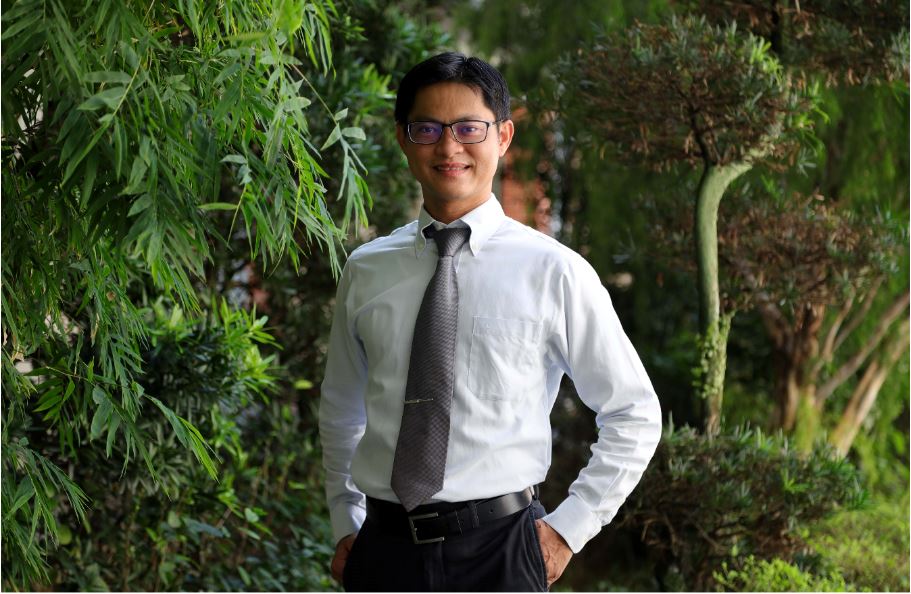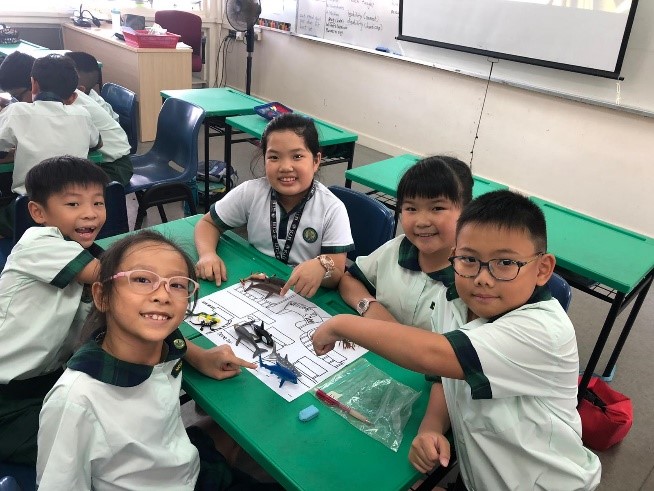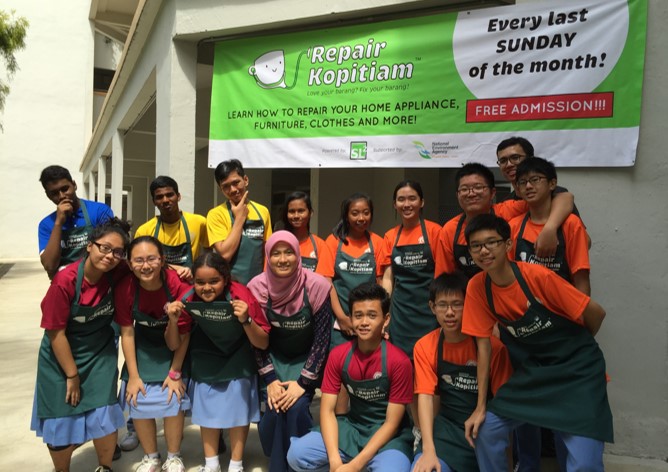One weekend, Science teacher Mr Benny Koh found himself wheeling 200kg of orange peels to his car in a borrowed trolley. There were five huge packages of peels. When he had stuffed three in the boot and two on the floor of the passenger seat, his car actually sank by a few inches.
What would a Science teacher do with that many orange peels?
For Mr Koh, the answer is usually an eco-friendly one.
Thanks to this sustainability enthusiast, Nanyang Girls High School (NYGH), where he teaches, is full of green initiatives. Mr Koh was among this year’s recipients of the National Environment Agency’s 14th EcoFriend Awards.
Every classroom at NYGH has a recycling corner. As you walk around the school, you see green initiatives aplenty, from the solar panels on the roof to the recycling bins in the pantries and offices of the administrative block.
During recess, you will spot at least two in five students bringing their own lunchboxes. And the schools’ herb and spice garden is blooming thanks to fertiliser made from solid food waste from the canteen leftovers.
Students as agents of change
Mr Koh says that while most students are aware of the issues of climate change and carbon emissions, many don’t realise what they can do to affect sustainable living as an individual.
For example, when covering the topic “The benefits and harmful effects of science on society and the environment”, his Secondary 1 students were horrified to learn of the sheer amount of resources that went into the production of disposable plastic containers.
They felt worse when Mr Koh went on to talk about the lasting effects these non-biodegradable materials could have on the environment when not disposed of properly.
That’s when he introduced the concept of Bring Your Own (BYO), starting with BYO food container.
Shares Mr Koh, “This is not difficult for students to do, and the concept can extend to BYO bag, tumbler and reusable straw for those who loves bubble tea. Done constantly, it becomes a habit and will form part of their lifestyle.”
The important thing, he adds, is to give them hope in what they can do as individuals.
Going school-wide
To take this message beyond individuals, Mr Koh started a school-wide Zero Waste movement in 2019. He started with the school canteen.
The Health Promotion Board was running a healthy diet movement to get students to eat a piece of fruit with their meals. The idea was great, but the pieces of fruit were each wrapped in a plastic bag. Benny proposed that the fruit be served in reusable bowls instead.
For the year, the stalls also stopped providing disposable boxes and cutlery for take-out orders, so students and staff would learn to bring their own. Eco-friendly dishwashing liquid was provided at the sinks for washing lunchboxes, cutlery and cups. And all food waste was collected and placed in the composter.
At the end of the year, both students and staff were able to see how easily they could contribute to a sustainable future through BYO. Mr Koh is glad that some have since continued with their habits.
Taking students beyond their comfort zone
To expose his students to the real-world challenges of promoting sustainability, Mr Koh sought out partnership opportunities with bubble tea companies during the holidays. Two companies – Kung Fu tea and Gravitea bar agreed, and Mr Koh’s students set about designing posters to encourage customers to Bring Your Own cup/tumbler in exchange for a 10-cent discount.
Secondary three student Cheryl Soh, who worked on this project, said, “I was very glad when the day came to put up our poster at the Ang Mo Kio branch of Kung Fu Tea because our hard work could finally come to fruition. Hopefully this effort can create some change in people’s mindset so they bring their own bottles.”
Secondary three student Lee Yi Xuan’s team worked on posters for Gravitea. She says that despite their initiative being a small act, “everything starts small,” and she hopes to have impacted some customers at least.
Feedback from the outlet managers of both Gravitea and Kung Fu tea was that the posters were effective. Between the period of May to August, the four outlets involved said that they had, in total, given out 479 fewer sets (cups, straw, lid and bag) of packaging than usual.
A citrusy-fresh approach to reducing waste
Mr Koh’s earth-friendly approach is evident even when raising funds for his CCA – the Green Club. He taught club members how to make fragrance bags from discarded orange peels. The peels were collected from students’ homes, dried under the sun, cut into tiny pieces, and packed into empty tea bags. These could be placed in shoe cabinets and toilets as a natural air freshener instead of ending in the trash. The fragrance bags were sold in the canteen to students and staff for 50 cents to cover club expenses. Once they got started, Mr Koh and his students experimented with peels of pomelo, grapefruit, lemon, and pineapple, so they now have a variety of scents for sale.
Next, Mr Koh wanted to show students how to turn peels into eco-enzymes that could be used for cleaning. It would an interesting Science lesson as well as on the fermentation process. Students could see how – depending on the type of micro-organism present – either alcohol, acetic acid, or both were produced over time. These have cleaning and anti-microbial properties, thus making the eco-enzymes effective.
Mr Koh planned a workshop for 60 environment ambassadors (EAs) of the school, who would then take the message back to the rest of the students. For the workshop, he obviously needed a large amount of peels and reached out to Fruits Vending, the company behind the orange juice-dispensing machines across the island.
That’s how, one weekend, Mr Koh came to be seated in his car, loaded down with orange peels.
“My car smelt of orange peels for about a week after that, but it was worth it,” says Mr Koh. “We ended up with about 200 containers of eco-enzymes. But beyond that, the EAs could also bring the knowledge back and share it with their classmates.”
Hopes for the future
Says Mr Koh, “Since young, I have seen how every day, many things, from gadgets to perishable food, end up as trash that never goes away. Even with proper disposal efforts, some trash is simply put somewhere else, out of sight. With time, there will be more trash, and this cannot go on.”
He continues to explain that as trash increases, more and more space will be occupied, leaving human beings with less living space. “If we run out of all natural resources, then the world will come to a standstill, and mankind will perish.”
He hopes his students will adopt and actively practise a lifestyle of sustainable living and encourage others to do so, too.
To them, he leaves this message: “When buying something, always ask yourself: is it a need or a want? Look at what you have rather than what you don’t have.”






.jpg)